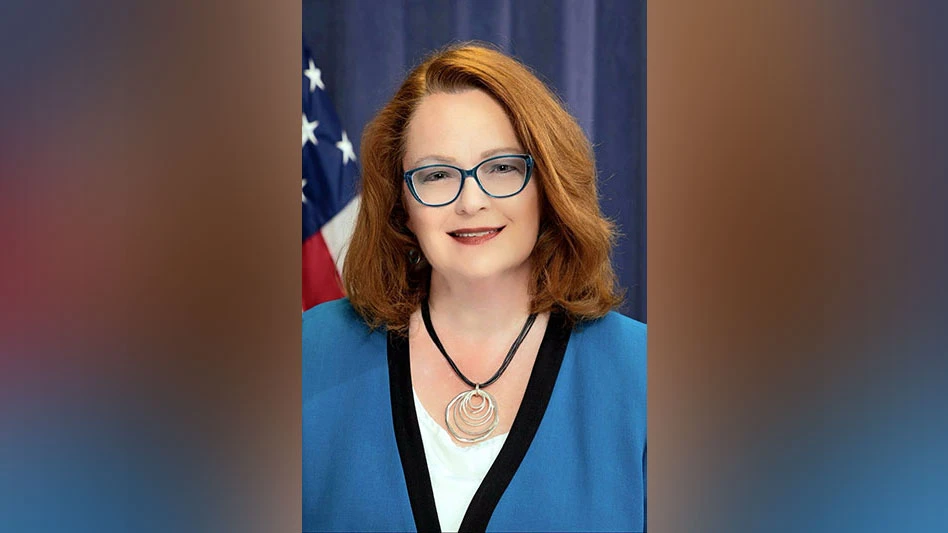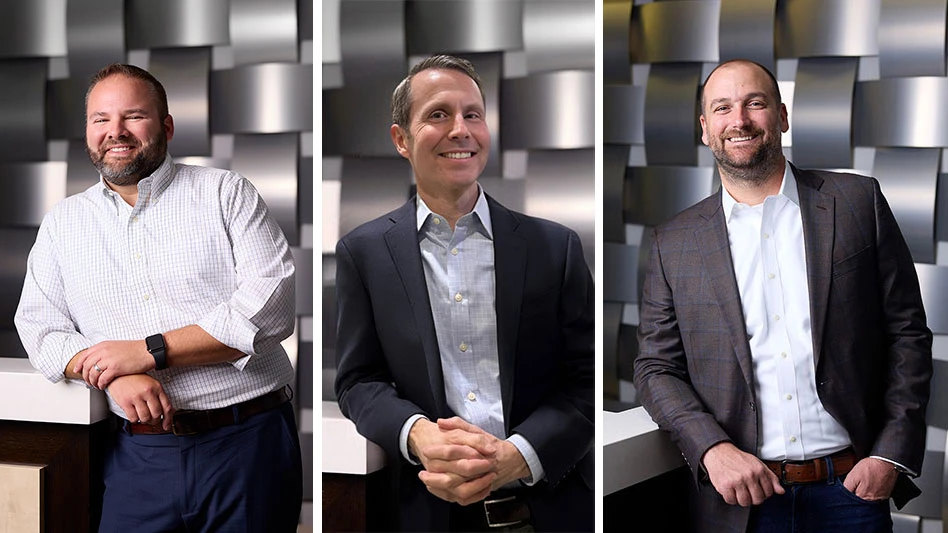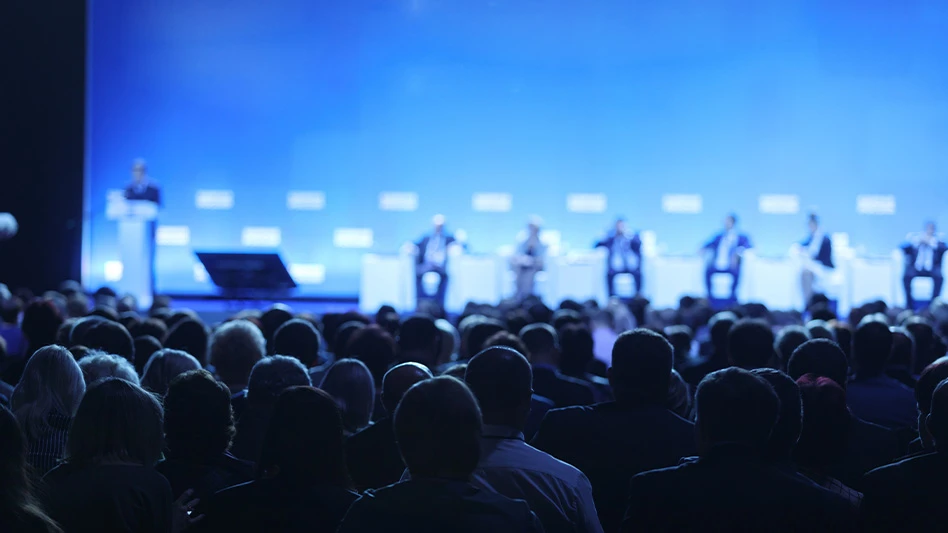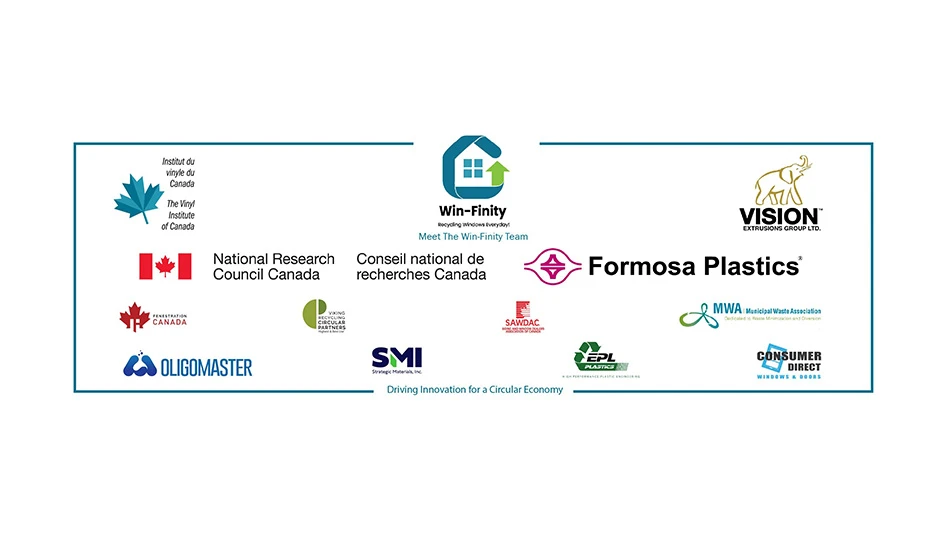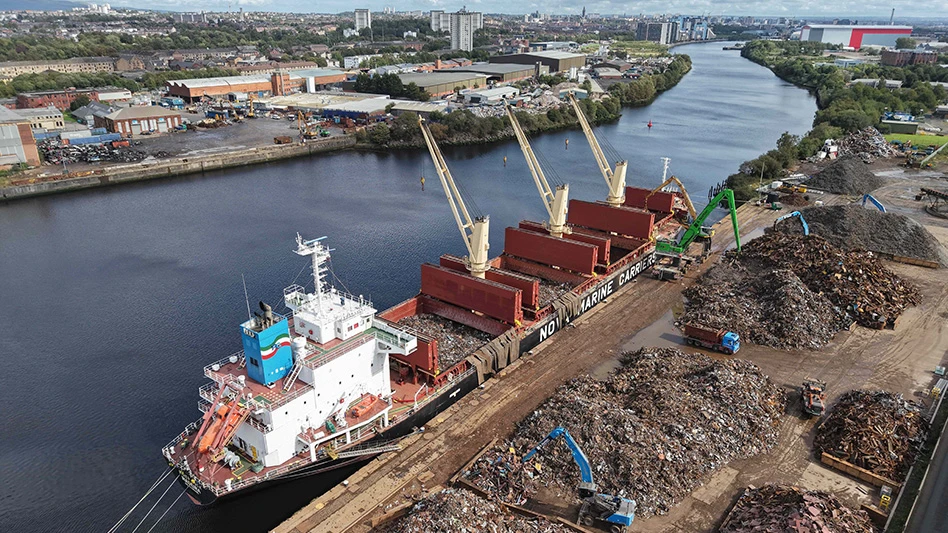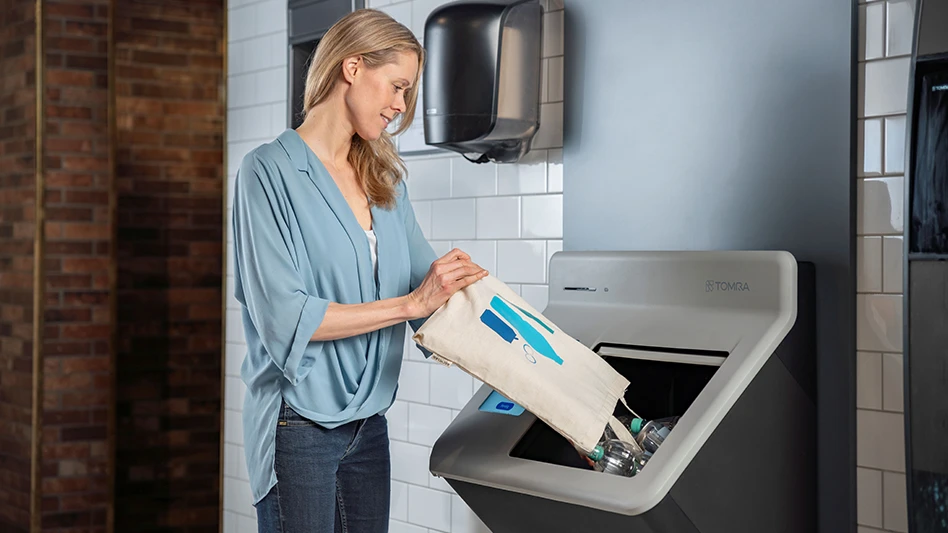 > METALS
> METALS
Novelis Breaks Ground on Recycling Plant in Germany
Novelis, an aluminium rolling and recycling company headquartered in Atlanta, has broken ground on a $250 million aluminium recycling and casting center at its plant in Nachterstedt, Germany. The recycling center will be built adjacent to the company’s existing aluminium rolling mill and is expected to be completed by the middle of 2014.
When completed, Novelis will be able to produce 400,000 metric tons per year of aluminium sheet ingot from recycled material.
“This investment represents another step in delivering on our commitment to dramatically increase the recycled content of the rolled aluminium sheet we provide to our world-class global customers,” says Phil Martens, president and CEO of Novelis, “while also signifying our long-term commitment to the European market. The advanced sorting, processing and casting capabilities of the new Nachterstedt operation will propel us closer to our goal of 80 percent recycled content by 2020.”
The center will process used beverage cans (UBCs) and other forms of aluminium scrap from across continental Europe.
> ELECTRONICS
Electronics Recycling Asia: Significant Progress
China has long been considered a maker and exporter of consumer electronics, but the development of a larger middle-class population has helped it gain ground as a recycler of these same products.
Professor Li Jinhui of China’s Tsinghua University, speaking at the Electronics Recycling Asia conference in November 2012, outlined the evolution of China’s electronic scrap industry as well as some potential changes.
Li noted that prior to 2000, electronics recycling in China was largely unregulated and often consisted of unsafe practices, such as acid leaching and burning of wire and cable. From 2000 to 2011, several pilot programs were tested, including the “Old-for-New” appliance, television and computer recycling program, where buyers of new goods received a 10% subsidy if they brought in an old one for recycling.
As of 2012, China has adopted regulations modeled on the European Union’s WEEE (Waste Electrical and Electronic Equipment) and RoHS (Restriction of Hazardous Substances) directives. According to Li, there are now more than 70 “licensed dismantling enterprises” in China that are certified to handle electronic scrap, with 43 of these receiving government subsidies to help them carry out their work.
“We are in a new stage,” declared Li. He also noted that China’s government and recycling industries are delving deeper to address the challenges and opportunities of recycling rare earth elements from the obsolete electronics stream.
The Electronics Recycling Asia conference, organized by ICM AG, was 13-16 Nov., 2012, in Guangzhou, China.
> EVENTS
Waste Management and Recycling India 2013 Conference Set for April
Waste Management and Recycling India will be held 8-10 April, 2013, at India Expo Centre and Mart, Greater Noida Expressway, Delhi, India.
The conference is organized by Inter Ads-Brooks Exhibitions of India in partnership with Mack Brooks Exhibitions Ltd. of the U.K.
The event seeks to provide a meeting place in India for businesses engaged in the waste and recycling industry to connect with one another as well as with product and service providers to the sector. The conference also seeks to assist professionals in discovering more about doing business in a country with one of the fastest growing economies, reports Michelle Amer, a spokesperson with Mack Brooks Exhibitions.
According to information posted on the conference website, www.wmrindia.com, India’s population produces some 68.8 million tons of municipal solid waste per year. If the current growth trend continues, during the next decade some 920 million tonnes of solid waste will need to be properly managed, according to the conference organizer.
Amer observes that with its current population of 1.2 billion people and a rapidly developing infrastructure, there are many opportunities in India for businesses in the recycling, waste management and energy-from-waste sectors. Amer also reports that by 2050, Indian economic output could be equivalent to that of the United States.
A number of U.S., European and U.K. companies already are working in India to take advantage of its waste infrastructure growth, Amer says.
Additional information on the conference is available at www.wmrindia.com.
> METALS
 UK Implements Ban on Cash Payments for Scrap Metal
UK Implements Ban on Cash Payments for Scrap Metal
A law recently passed in the United Kingdom that calls for a ban on the use of cash to pay for scrap metals brought to scrap metal yards in the U.K. and Wales is now in effect. The decision to ban these cash payments of scrap metal was prompted by rampant theft of nonferrous metals from throughout the country.
Penalties for those breaking the law also have been increased in amendments to the Legal Aid, Sentencing and Punishment of Offenders Bill.
According to the BBC, the U.K.’s Association of Chief Police Officers estimates that metal theft costs the U.K. economy £770 million per year.
The U.K.’s Home Office says the measures are designed to eliminate the illegal metal industry, which it estimates costs the country at least £220 million per year.
Jeremy Browne, crime prevention minister, said, “Metal theft affects everyone, and the impact on our communities is immense. From loss of power to homes and disruption in rail services to desecrated war memorials, all our lives are blighted by this national problem.” He said the measures are designed to reform the industry to support legitimate dealers.
In conjunction with the legislation, the law is supported by stronger law enforcement activity and £5 million which the government has allocated to a dedicated metal theft taskforce.
> KERBSIDE
Veolia Signs 25-Year Contract with UK City
Veolia Environmental Services, through its subsidiary Veolia Environmental Services (UK) Plc, has signed a 25-year private finance initiative (PFI) contract with the Leeds, U.K., city authorities for residual municipal waste treatment and energy recovery.
Veolia Environmental Services was selected as the preferred bidder for a contract worth £460 million. It includes the installation of a high-tech recycling and energy recovery facility that is expected to save the city £200 million during the term of the contract.
Subject to obtaining the necessary planning consents, the facility will be built in the East Leeds Cross Green Industrial Area. It will supply the national grid with enough electricity to power 20,000 households. In cooperation with the Leeds city authorities, Veolia Environmental Services (UK) Plc also is planning to develop a cogeneration plant able to supply heat to local users. The recycling and energy recovery plant is scheduled to open in spring 2016.
“This remarkable facility reflects our strategic commitment to the U.K. market and our sustainable development approach that is reflected in the construction of new waste treatment and energy recovery plants,” says Jérôme Le Conte, CEO of Veolia Environmental Services.
> ELECTRONICS
 SWEEEP Kuusakoski Opens Lead Recovery Furnace
SWEEEP Kuusakoski Opens Lead Recovery Furnace
SWEEEP Kuusakoski, a Kent, U.K.-based waste electrical and electronic equipment recycling company, has invested £2 million to develop what it says is the world’s first commercial scale glass furnace, allowing the company to recover lead and pure glass from the leaded cathode ray tube (CRT) glass in old televisions and computer screens. The furnace, based in Sittingbourne, U.K., can recover 1 kilogram of lead from each of the 4,000 CRTs it can process a day.
With the investment, SWEEEP Kuusakoski, a joint venture between U.K.-based SWEEEP and Kuusakoski, the Finland-based metals recycling company, will be able to reprocess about 10 metric tons of CRT glass per day.
The grand opening of the furnace was 30 Nov., 2012, and included Right Honorable Michael Fallon, U.K. MP and minister of state for business and enterprise. He was joined by Pekka Huhtaniemi, the Finnish ambassador to Great Britain; and Gordon Henderson, MP for Sittingbourne and Sheppey.
The company says it has gained end-of-waste status from the Environment Agency on the cleaned X-ray-sorted panel glass and adds that the furnace is the result of a collaboration between SWEEEP Kuusakoski and inventor Simon Greer.
> METALS
CMRA Celebrates 10 Years
Several hundred traders, recyclers and scrap consumers gathered for the China Nonferrous Metals Industry Association Recycling Metal Branch (CMRA) 2012 International Forum in Beijing in November.
At the event’s opening session, CMRA officers accepted congratulations from international recycling association representatives on reaching its 10th anniversary in 2012.
“Over the past decade, the CMRA has done a lot to professionalize its members and [thus] helped the entire international recycling industry,” said Francis Veys, director general of the Bureau of International Recycling (BIR), Brussels.
Robin Weiner, president of the Washington, D.C.-based Institute of Scrap Recycling Industries Inc. (ISRI), also praised the CMRA for the role it has played in the previous 10 years. She added that ISRI and CMRA “have developed a very strong working relationship.”
In his report to members, CMRA Vice President and Secretary General Wang Jiwei commented, “In the last 10 years we have achieved a lot, and this is because of national policies that have supported us.”
Wang also announced that the 2012 Forum would be the last one in which long-time Vice Secretary General Ma Hongchang would serve in that capacity. Noting Ma’s many contributions, Wang said the former officer will stay involved with the CMRA in an advisory role.
The 2012 CMRA Recycling Metal International Forum was at the China World Hotel in Beijing 7-9 Nov., 2012.
> METALS
Brazil Claims 98 Percent UBC Recycling Rate
The Brazilian Aluminum Association (ABAL) and Associação Brasileira dos Fabricantes de Latas de Alta Reciclabilidade (Abralatas) have jointly announced that 248,000 tons of used beverage cans were collected and recycled in Brazil in 2011. That total pushed the UBC recycling rate in Brazil to a record 98.3 percent, and the groups say Brazil has the highest UBC recycling rate of any country.
According to the two associations, Brazil’s UBC recycling rate has been the best of all countries since 2001. Last year 18.4 million aluminium containers were recycled in the country.
Renault de Freitas Castro, CEO of Abralatas, says the beverage can manufacturing industry in Brazil has been investing continuously to meet growing demand for aluminum cans. “In 2012, the industry increased its production capacity by 9.5%, moving from 21 billion to 23 billion units per year,” he says.
Carlos Roberto de Morais, coordinator of ABAL’s recycling committee, says of Brazil’s UBC recycling rate, “This result has its foundation in a chain structured more than 20 years ago that guarantees a strong and consistent demand that remunerates all the links involved therein.”
According to ABAL, the collection of UBCs has injected $310 million into the Brazilian economy.
> PLASTICS
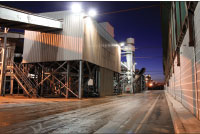 Axion Polymers Invests in UK ELV Plant
Axion Polymers Invests in UK ELV Plant
Plastics recycler Axion Polymers, based in the U.K., has announced the investment of £1 million in 2012 to optimize materials recovery from end-of-life vehicles (ELV) at its purpose-built plant in Manchester, U.K.
According to an announcement, Axion’s in-house engineering team designed, built and operates the highly specialized, multimillion pound shredder waste advanced processing plant (SWAPP) jointly with the U.K.-based recycling company S. Norton & Co.
In addition to taking in auto shredder residue (ASR) generated by S. Norton, the company also will accept ASR from other U.K. shredders.
Opened in January 2011, the plant is already capable of delivering more than 95% recycling and recovery of materials from end-of-life vehicles (ELVs), ahead of the 2015 EU ELV recycling and recovery target.
Roger Morton, Axion director, says, “This latest cash injection is part of ongoing efficiency optimization at the facility, which has an annual 200,000-tonne capacity. It enables Axion to separate the non-metallic fractions from the equivalent of about 800,000 cars per year.
“Although the operation is still developing, we are already delivering the 95% recycling and recovery target through a combination of plastics recycling, producing materials for the construction industry and fuel to substitute coal,” Morton adds.
> METALS
Mixed Views Characterized Ferrous Markets at Recent BIR Meeting
Over-capacity in the global steel industry is mirrored to some extent by excess capacity in the steel recycling sector, notably among highly developed economies, divisional President Christian Rubach of Germany-based TSR Recycling told delegates to the latest Bureau of International Recycling (BIR) Ferrous Round-Table were. The BIR Round-Table Sessions were in Barcelona, Spain, in late October 2012.
Addressing Ferrous Division attendees, Rubach said that amid “unstable” economic conditions, recyclers “are facing enormous uncertainties.”
His concerns chimed with those expressed by Hisatoshi Kojo of Metz Corp. in Japan, who noted that domestic “price-setter” Tokyo Steel cut its scrap purchasing price 13 times between mid-August and mid-October by a combined sum of ¥5000 per tonne (just more than US$63).
Keynote speaker Ralph Oppenheimer, chairman of steel trading firm Stemcor, shared a positive outlook, predicting ferrous scrap values would rise “by at least US$50 per tonne” in the next three months, not least because scrap is “seasonal” and prices tend to rise in the winter. Longer term, he anticipated further increases given that “demand for scrap is growing faster than supply.”
> ELECTRONICS
 FCC Environment Picks EnvironCom to Handle WEEE
FCC Environment Picks EnvironCom to Handle WEEE
The recycling and resources firm FCC Environment, based in the U.K., has chosen the U.K.-based electronics recycling firm EnvironCom as its preferred partner for servicing all the waste electrical and electronic equipment (WEEE) FCC collects across its 60 local authority sites.
Through the partnership, all of the WEEE collected from sites serviced by FCC Environment will be sent for processing at one of EnvironCom’s two U.K. sites, located in Grantham, Lincolnshire, and Edmonton, London. EnvironCom says it already achieves more than a 15% reuse rate and is striving to increase this to 30% during the next several years.
As part of the agreement, EnvironCom started training FCC Environment’s staff on the proper handling of WEEE.
Graeme Parkin, EnvironCom group commercial director, says, “We’re delighted to be working with FCC Environment and we know the partnership of our two companies can really make a difference to the way WEEE is perceived and dealt with at local authority sites. We share the mutual aim of doing the right thing with WEEE.”
> ENERGY RECOVERY
UK Agencies Approve New ASR Processing Procedures
The British Metals Recycling Association (BMRA) is applauding a decision made by the U.K.’s Environment Agency and Department for Environment, Food and Rural Affairs (Defra) that allows for auto shredder residue (ASR) generated by auto shredders in the country to be recovered and converted into energy rather than being landfilled.
In a statement, the BMRA says the decision could mean most of the 800,000 metric tons of ASR landfilled each year can be used to produce plastics and generate electricity. Additionally the BMRA says the decision could help the U.K. meet EU recycling and recovery targets.
Ian Hetherington, director general of BMRA, says, “This is a long-awaited decision that represents the best outlet for the material, which until now could only be landfilled. The U.K. metal recycling industry has been waiting for a positive decision in order for them to determine how best to drive up recycling rates for end-of-life vehicles (ELV) while generating growth for the sector and the country.”
Hetherington adds that now, with the right policy framework in place, the metals recycling industry will endeavor to retain a lead in developing materials recycling and recovery while also creating green jobs and growth in the sector.
The association notes that while presently more than 85% of the vehicles are recycled, this decision allows energy recovery via the thermal processing of this material rather than disposing of it in landfills. The result is giving association members the ability to make the investments needed to increase the EU recovery targets, which are slated to reach 95% in 2015.
> PLASTICS
German Recycled Plastics Maker Gets Funding Boost
Silver Lake Kraftwerk, a private equity firm headquartered in Menlo Park, Calif., has invested $40.1 million in Friedola Tech, a Geismar, Germany-based manufacturer of products for the automotive and packaging industry made with recycled plastic. According to Silver Lake Kraftwerk, the investment will enable Friedola Tech to further develop its product lines, expand its business in key market segments and expand its operations into new geographic regions, including the opening of a manufacturing facility in Greenville, S.C.
The company says it expects to open the South Carolina facility in stages, beginning in early 2013. Friedola Tech currently operates three facilities in Germany and supplies what it calls lightweight, recyclable plastic products, using primarily postindustrial polypropylene plastic scrap.
Under terms of the transaction, WHEB Partners, a European-based resource efficiency private equity firm, has agreed to sell its majority stake in Friedola Tech to Silver Lake Kraftwerk while remaining a shareholder. The deal is currently being reviewed for antitrust approval by German authorities.
“There is a growing global market for engineered plastics and industrial products that are lightweight and reusable,” says Josh Raffaelli, a partner with Silver Lake Kraftwerk. “Friedola Tech is uniquely positioned as a market leader in this industry and we are eager to support their growth.”
> EVENTS
Electronics Recycling Asia: Nothing Secondary About It
Yangzu Wang of China’s Ministry of Environmental Protection, speaking at Electronics Recycling Asia in November 2012, addressed the importance of secondary materials to China’s economy.
“In the past 20 years, 360 million tons of recyclable materials have been imported into China,” Wang said. He also noted that the resources have provided jobs to 1 million people and saved 80% of the energy that would have been consumed using primary materials.
Get curated news on YOUR industry.
Enter your email to receive our newsletters.
Latest from Recycling Today
- COMEX copper comes down
- IWS acquires North Atlantic Waste & Recycling
- WM opens 2 new recycling facilities
- Poll indicates majority of Americans connect rising grocery costs with steel tariffs
- Atlantic Heavy Duty opens Wilder, Kentucky, regional service center
- True to its core
- McKinsey recommends additional aluminum sorting
- Sabert acquires fiber-based packaging producer Colpac
